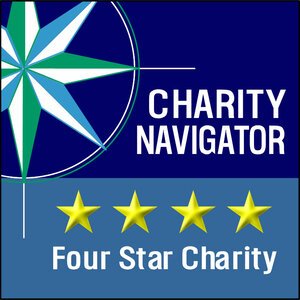Historical Narratives
Casey Jones
Hal Cannon retraces the final journey of engineer Casey Jones and discovers the man behind the folk legend and the reasons why this song remains popular more than 100 years after it was written.
Documenting Big Name Entertainment in Elko Casinos
In 1941, the Commercial Hotel in Elko became Nevada's first casino to bring big-name entertainment to it's stage, creating the model that was then copied by casinos in Las Vegas, Reno and elsewhere. Realizing that most of the trains shuttling big-name acts such as Tommy Dorsey, Sophie Tucker, Chico Marx, Spike Jones and Xavier Cougat, between the East Coast and California were chugging right through Elko, Newt Crumley Jr., the son of the owner of the Commercial Hotel, decided to try and book them to perform in the casino. Before long, the biggest names in showbiz were performing in Elko at both Crumley's Commercial Casino and Red Ellis' Stockmen's Hotel and Casino.
John A. Lomax, impressario and folklorist
Prison Songs: The Angola Blues
For most of its 110-year history, the Louisiana State Penitentiary at Angola has been synonymous with brutality, suffering, and executions. Yet as prisons go, it stands out for an entirely different reason: its music. Back in the 30s and 40s the famous folklorist, John A. Lomax and his son Alan were drawn to Angola (and other prisons) in their quest for folk music in its “purest” form. The elder Lomax believed prison walls were a filter against the “polluting” influences of popular music.
Huddie "Lead Belly" Ledbetter, c. 1930-1940, discovered by John Lomax
Inside Angola’s walls, prisoners found not only isolation, but the perpetuation of a plantation-like farming system that had the effect of preserving many of the work songs from the days of slavery. Prisoners worked the fields in large groups and sang together, and Lomax was able to capture their songs before they went extinct. One of the best known "discoveries" of John Lomax was Huddie "Lead Belly" Ledbetter.
Hal Cannon and Taki Telonidis of the Western Folklife Center, along with Steve Zeitlin of City Lore, visited Angola Prison in April 2010 as a part of their project following in the footsteps of John A. Lomax. At Angola, they discovered that while the penitentiary is a very different place than in Lomax's day, music remains an important part of life for many of the inmates. Here we feature videos of the group Voices in the Wilderness, and inmates Michael Palmer and Daniel Washington.
Visit http://www.leadbelly.org to learn more about Huddie Ledbetter and the foundation created in his name.
This story was produced by Taki Telonidis in collaboration with City Lore, and funded by the National Endowment for the Arts. We thank the Lousiana State Penitentiary for their courtesy.
Integrated cowboy crew on the Merkleson Ranch, ca. 1890s, Texas; photo courtesy of the Gillette Brothers
John Lomax and the Cowboy Blues
On the 100th anniversary of the famous book, Cowboy Songs and Other Frontier Ballads we explore the contribution of African Americans to cowboy life and music.
This Deep West Radio documentary is a part of the Western Folklife Center/City Lore project about cowboy song collector John Lomax. The great trail drives of the 1870s came on the heels of the Civil War and a significant number of the cowboys working those cattle were freed slaves, who brought with them their musical traditions. Those traditions mingled with the other music of the times, as men from a variety of backgrounds converged on the trails to deliver beef to a hungry nation.
Charley and Laura Willis, ca. 1800s
Don Edwards sings the cowboy classic Streets of Laredo which traces its roots to a centuries-old British ballad.
Out of their efforts was born the iconic cowboy...whose image and music came to define us as Americans. Yet as the mythic cowboy grew in stature, the real cowboy in all his diversity was slowly cropped out of the picture. Featured in the photo above is Charley Willis and his wife Laura from the late 1800s. Willis is credited with the original version of the classic cowboy song, "Goodbye Old Paint."
An interesting online reference guide to African American history is blackpast.org that includes many articles and profiles about blacks in the West, including Charley Willis.
First Flight, First Hand, The Wright Brothers and Kitty Hawk
On the 100th anniversary of the famous flight at Kitty Hawk, we hear the story of the Wright Brothers from people who witnessed first-hand the dawn of aviation and whose voices were preserved decades ago in a series of interviews that have never been broadcast. This feature was awarded the Max Karant Award for Excellence in Aviation Coverage in 2004, one of the top honors for aviation journalism.
On the Lincoln Highway, UT
Bouncing along an abandoned stretch of America’s first transcontinental highway in a Ford Model T, we are transported to the earliest days of car travel. Between 1913 and 1927 the Lincoln Highway stretched from New York to San Francisco, and this section across western Utah and northern Nevada, was the most challenging.
Snake River Outlaws Retrospective
The Snake River Outlaws played live every Saturday night from the Sunshine Bar on the corner of Woody and Alder in Missoula, and were broadcast live on KXLL radio. The Western Folklife Center Retrospective contains rare digitally re-mastered recordings of live radio shows the Outlaws recorded in Missoula around 1950, in a sound capsule of a time when cowboys, railroaders, college students, college ladies and vagabonds all hoisted mugs of beer to fine music and western sociability.
The Western Folklife Center launched its Deep West Records CD, a tribute to the 1950s cowboy band Snake River Outlaws—one of the hottest honky-tonk cowboy bands in the Northwest during the late 1940s and early 1950s—in a concert with western swing band Wylie & the Wild West, in Missoula, Montana. Members of the original band joined Wylie & The Wild West lead guitar player Scot Wilburn, whose father and uncle were original members of the Outlaws. Jimmy Widner of Darby, Montana, was there with his fiddle; and Orval Fochtman, the original lead singer for the group, traveled to Missoula from Weiser, Idaho.
The concert was part of the 2008 River City Roots Festival, a free event in downtown Missoula. The concert was presented by the Western Folklife Center and its Deep West Records label, in conjunction with the River City Roots Festival and the Missoula Art Museum. The Retrospective documentary was presented by Montana Public Radio and the Western Folklife Center. The CD is available in the Western Folklife Center Gift Shop.













